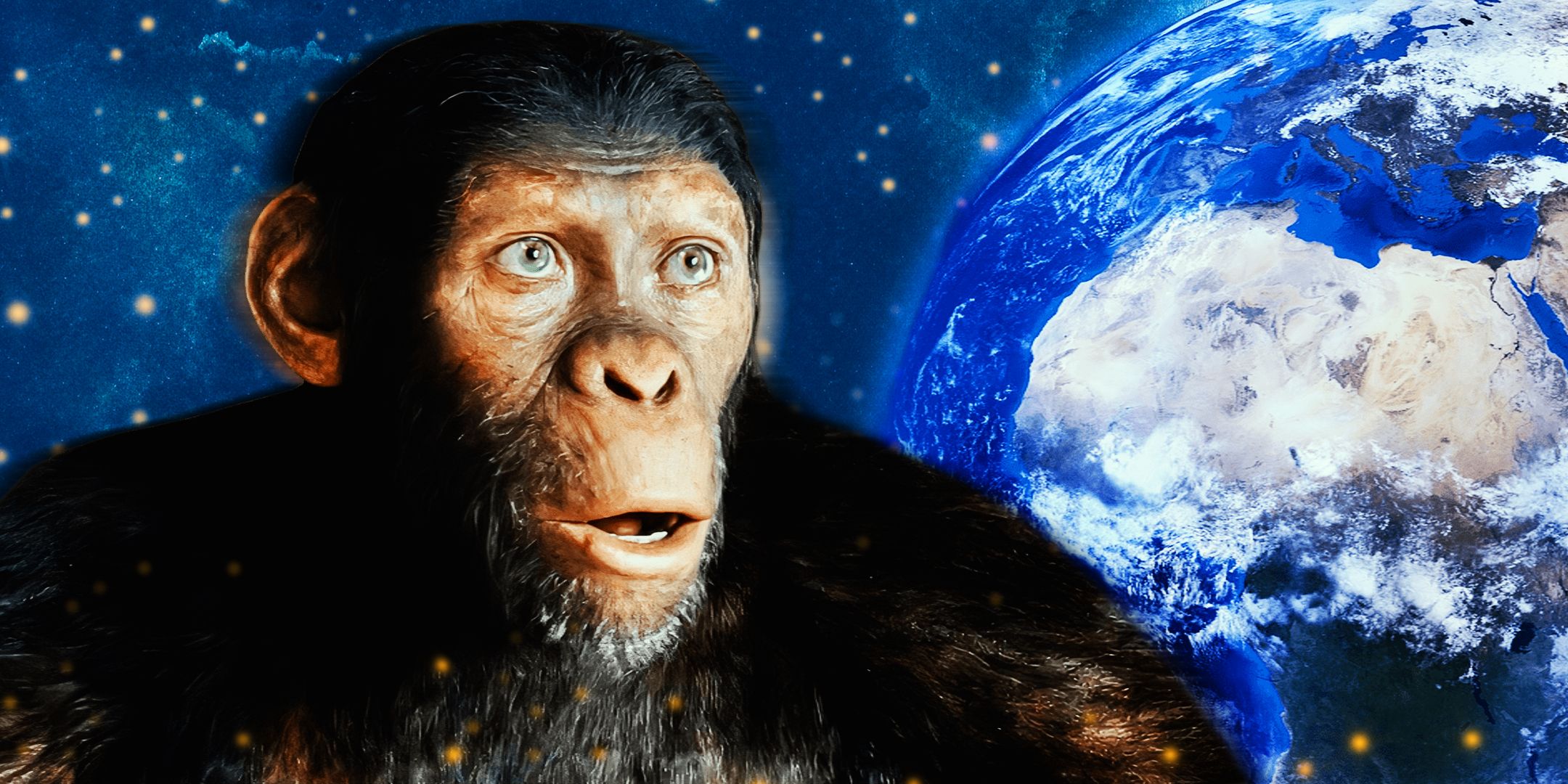
Over the almost 60 years since its inception, the “Planet of the Apes” series has presented various interpretations of human extinction. Even the original films weren’t consistent, and the 1968 film starring Charlton Heston significantly deviated from its source material. In fact, Pierre Boulle’s political satire was transformed into a more conventional science fiction story with Cold War undertones. While some alterations were unavoidable, the original “Planet of the Apes” films struggled to maintain a coherent narrative, and the modern prequel series has only added to the confusion by introducing further changes.
The cinematic journey of modern Planet of the Apes films began with the 2011 release of Rise of the Planet of the Apes, a movie that built on concepts from earlier films but also significantly altered the cause of human downfall – the so-called fall of humanity. The timeline for Planet of the Apes can be tricky to follow, and each new origin story reboot only serves to make its intricate history more convoluted. Be it to echo Cold War anxieties or to create a more believable depiction of mankind’s demise, the apocalyptic scenario in Planet of the Apes has proven to be one of the most adaptable aspects within this popular film series.
Planet Of The Apes (1968) Revealed Apes Took Over After Humans Destroyed Themselves
The Original Planet Of The Apes Reflected Cold War Fears

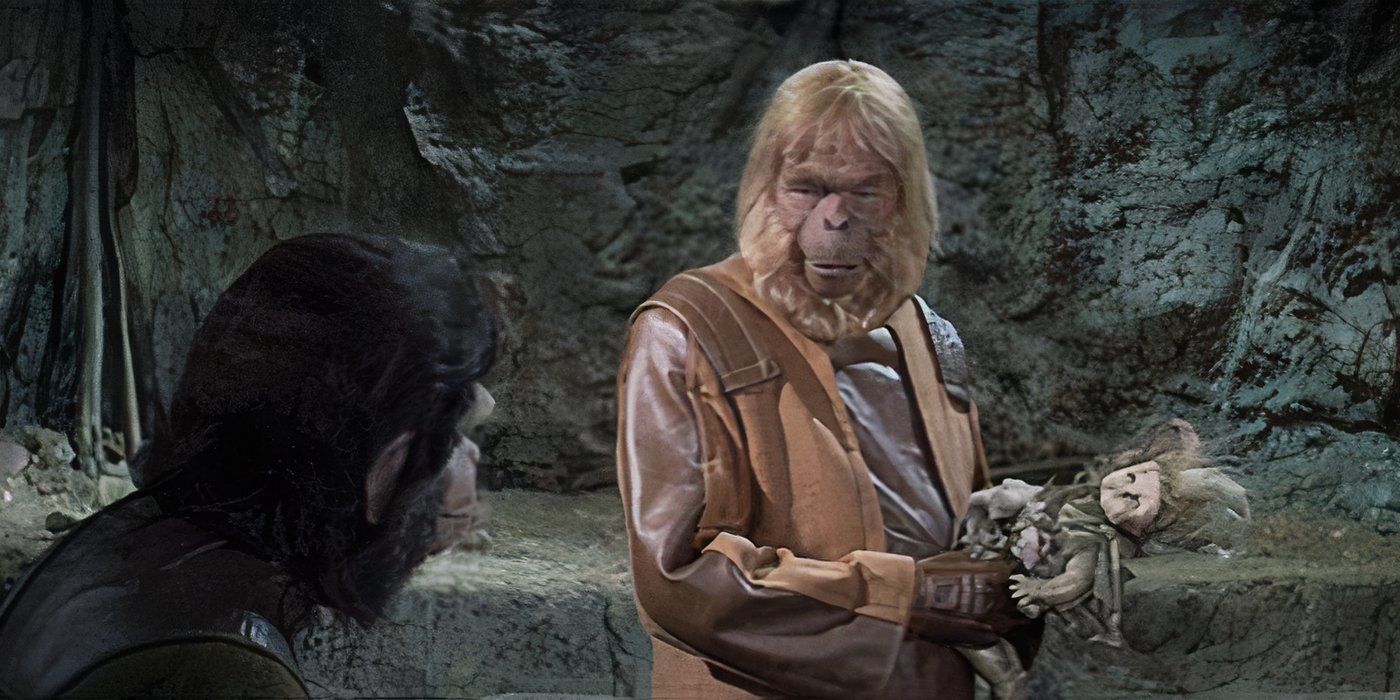
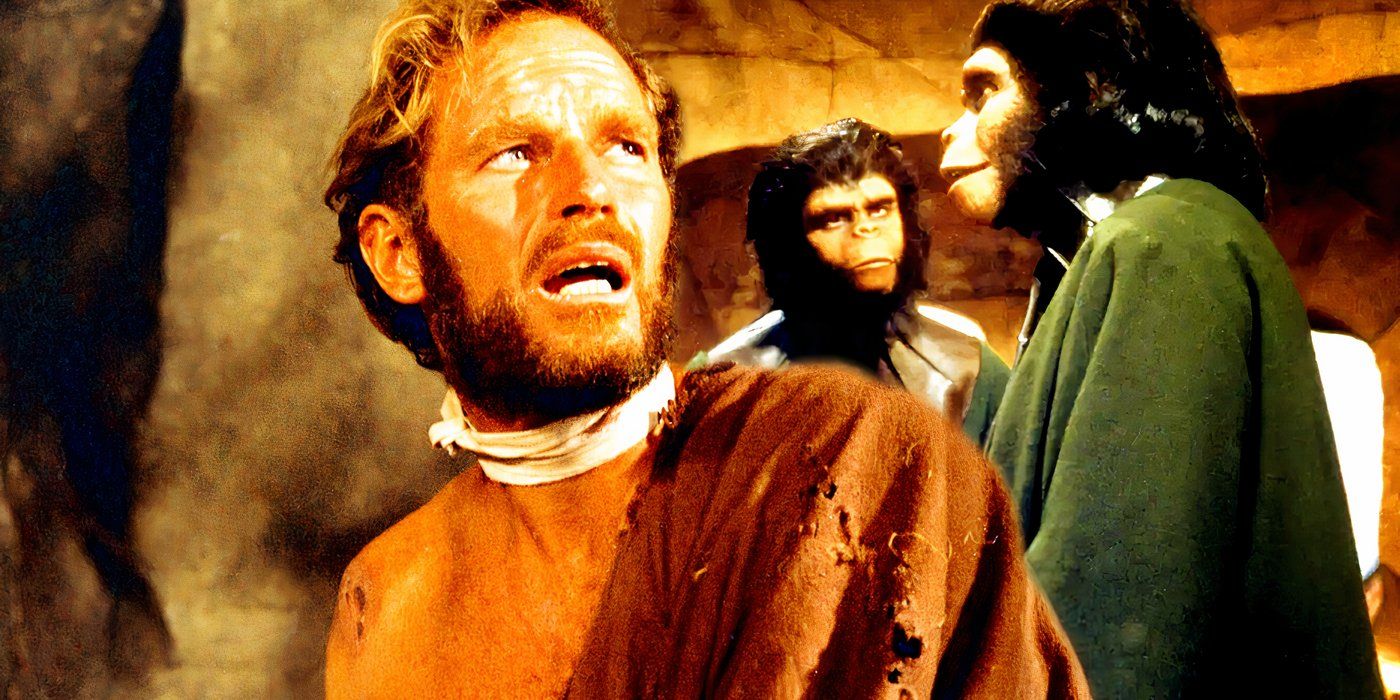
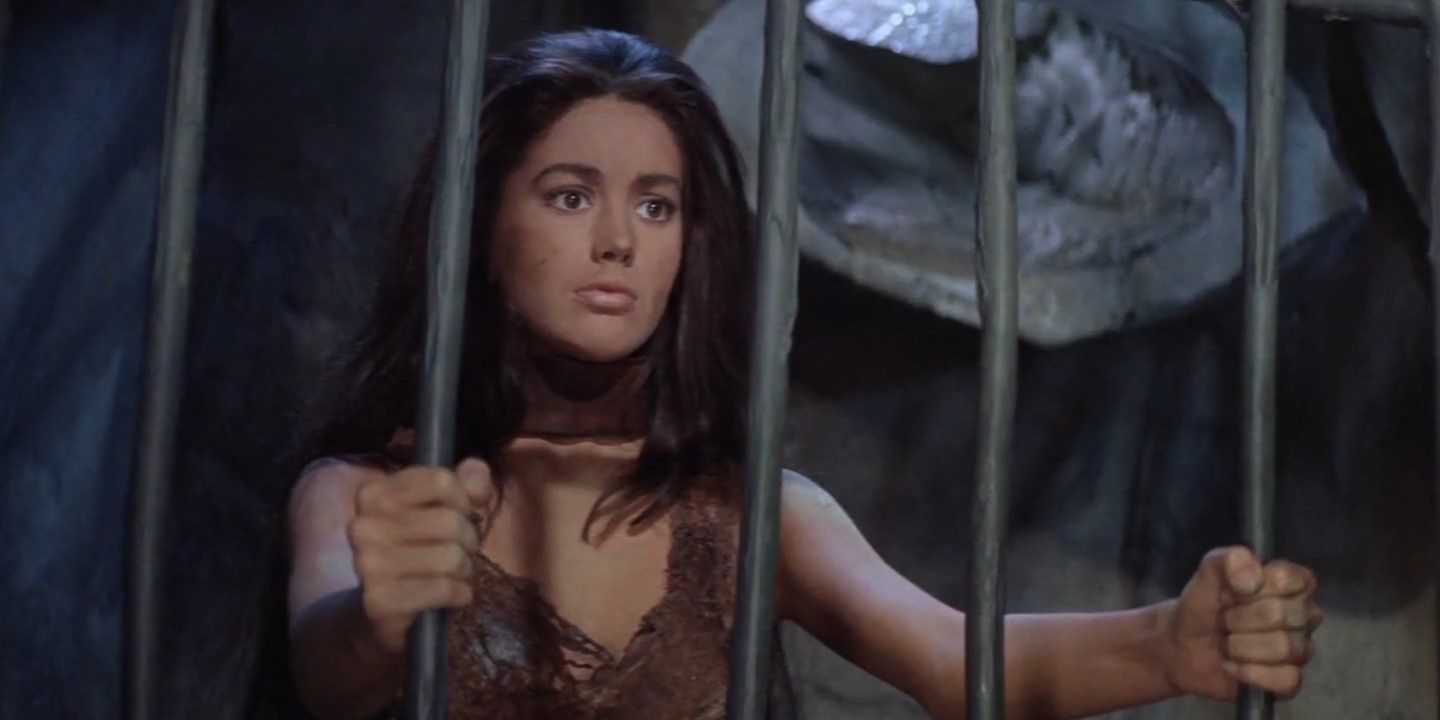
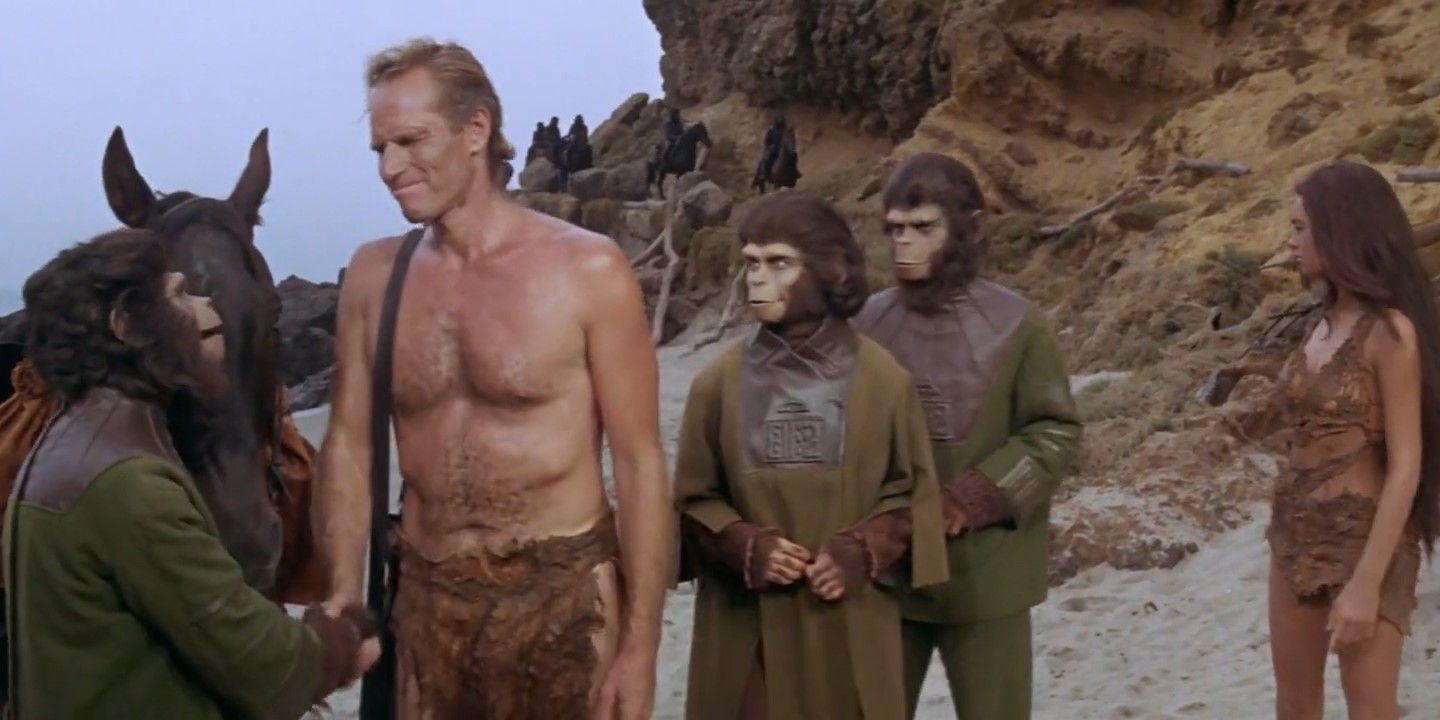
Science fiction serves as a means to delve into contemporary concepts through a veiled perspective, and the 1968 film “Planet of the Apes” is no exception to this rule. Although it may have diminished some of the political satire found in Boulle’s novel, it still mirrored contemporary events by depicting the fall of mankind. The startling conclusion of “Planet of the Apes” reveals that Heston’s astronaut character, Taylor, uncovers the remnants of the Statue of Liberty on a shoreline, ultimately causing him to comprehend that he hasn’t been exploring an alien world but Earth itself.
The movie doesn’t provide a clear answer as to why humanity collapsed and apes took over, but it can be inferred that they destroyed themselves through a nuclear war, which is later confirmed in the first sequel, “Beneath the Planet of the Apes.” Despite some progress between the US and Soviet Union by the late 1960s, the lingering fear from the early-’60s Cold War was still prevalent among audiences and creators. A nuclear war was a popular apocalyptic scenario at that time, making Boulle’s vague explanation incongruous with the public mood in 1968.
In the novel, the astronauts flee from the planet depicted in the title on a spacecraft and safely make it back to Earth. Regrettably, Earth has also been conquered by apes at this point. The book suggests that humans once trained apes, and over time, they grew lazy and were eventually overpowered by their intelligent simian overlords. This concept appears to be a political statement by Boulle, but it lacks depth in a cinematic perspective. Tim Burton’s 2001 adaptation of “Planet of the Apes” follows the book’s ending, but it doesn’t clarify how mankind fell.
Earth Is Destroyed At The End Of Beneath The Planet Of The Apes
A Human Finally Blows Up The Whole Planet

In the various tales told across the Planet of the Apes series, the demise of humanity has been reimagined multiple times. However, it is only in the 1970’s movie, Beneath the Planet of the Apes, that we witness a complete annihilation of Earth – through a catastrophic nuclear war. This film not only reveals humanity’s fate but also introduces a cult of human mutants who reverence a nuclear bomb. The eerie premise expands upon the surprising ending of the first movie, offering additional insights into why apes ultimately dominated over humans.
Unfortunately, “Beneath the Planet of the Apes” marks the conclusion of the initial series. In this installment, the underground mutants employ their “doomsday weapon” to annihilate Earth completely. Ironically, Taylor triggers the bomb, resulting in the destruction of the entire planet along with him. Yet, through some creative storytelling and time travel, the series was able to persist a few years down the line in “Escape from the Planet of the Apes”.
Escape From The Planet Of The Apes Retconned How Apes Took Over Earth
Time Travel Muddies Up The Timeline

In the aftermath of Earth’s destruction as portrayed in “Beneath the Planet of the Apes,” Zira and Cornelius managed an incredible escape aboard Taylor’s refurbished spacecraft in “Escape from the Planet of the Apes.” However, this explosion catapulted them through a temporal vortex, landing them back on our contemporary Earth. Their capture then triggered a chain of events that would ultimately reshape humanity’s ultimate demise. Pursuing to avert their own species’ nuclear annihilation, Zira and Cornelius unintentionally altered the timeline by meddling with human history.
In the world where many seek to eliminate Zira and Cornelius, their fate ultimately proves unavoidable. However, Zira’s newborn son is covertly taken away and hidden within a circus environment, enabling him to live among apes of comparable intelligence. Fast-forward to the next installment, Conquest of the Planet of the Apes, set a decade later. This timeline follows a catastrophic pandemic that decimated all cats and dogs on Earth, causing humans to keep apes as pets and workers instead. Furthermore, the government has grown more militarized and oppressive in this time.
In the sequel to their story, Caesar – formerly known as Zira and Cornelius’ son – is now a circus performer, but he grows more and more discontent with the injustices faced by his ape kin. Eventually, Caesar instigates a revolution against humans, signaling what appears to be humanity’s demise. This plotline marks a significant shift from the initial movie, as it omits the nuclear war entirely. However, the final film in the original series, “Battle for the Planet of the Apes,” reveals that humanity would ultimately meet its end through a nuclear catastrophe.
What Happened To Earth In The New Planet Of The Apes Movies
The Reboot Quardrilogy Builds On Ideas From The Classic Movies
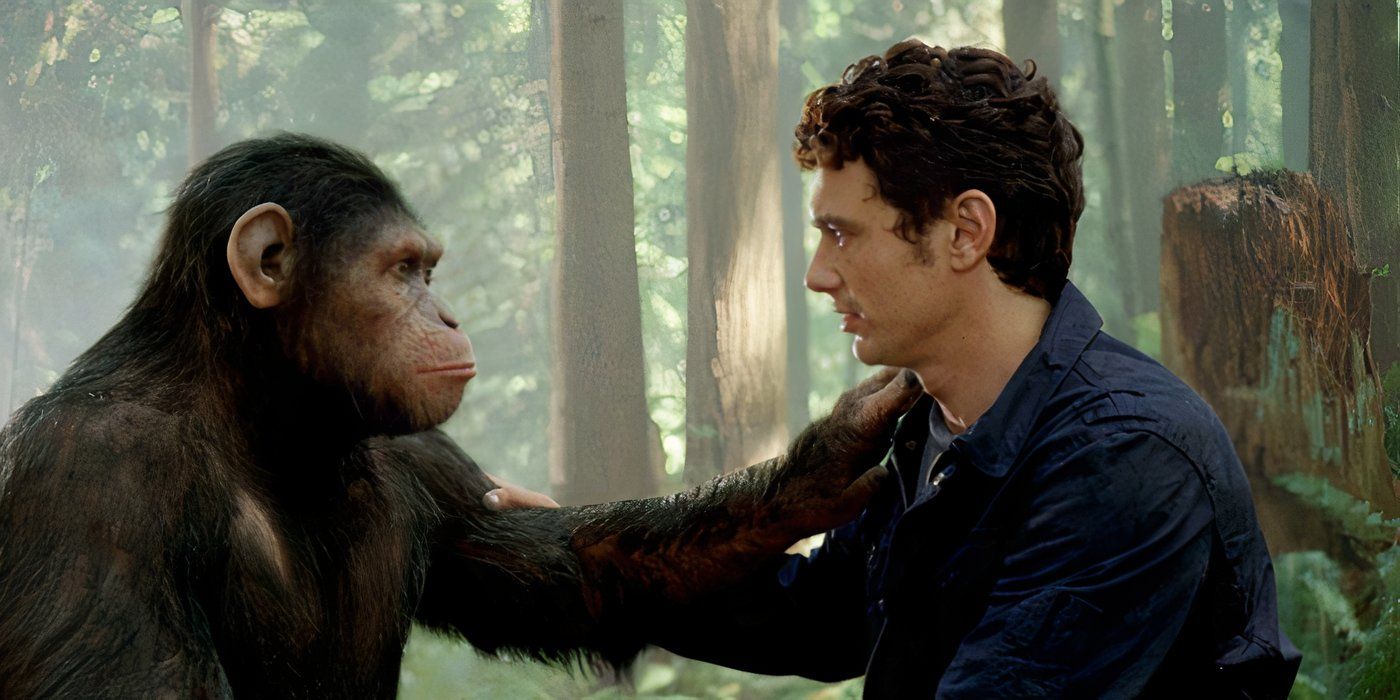
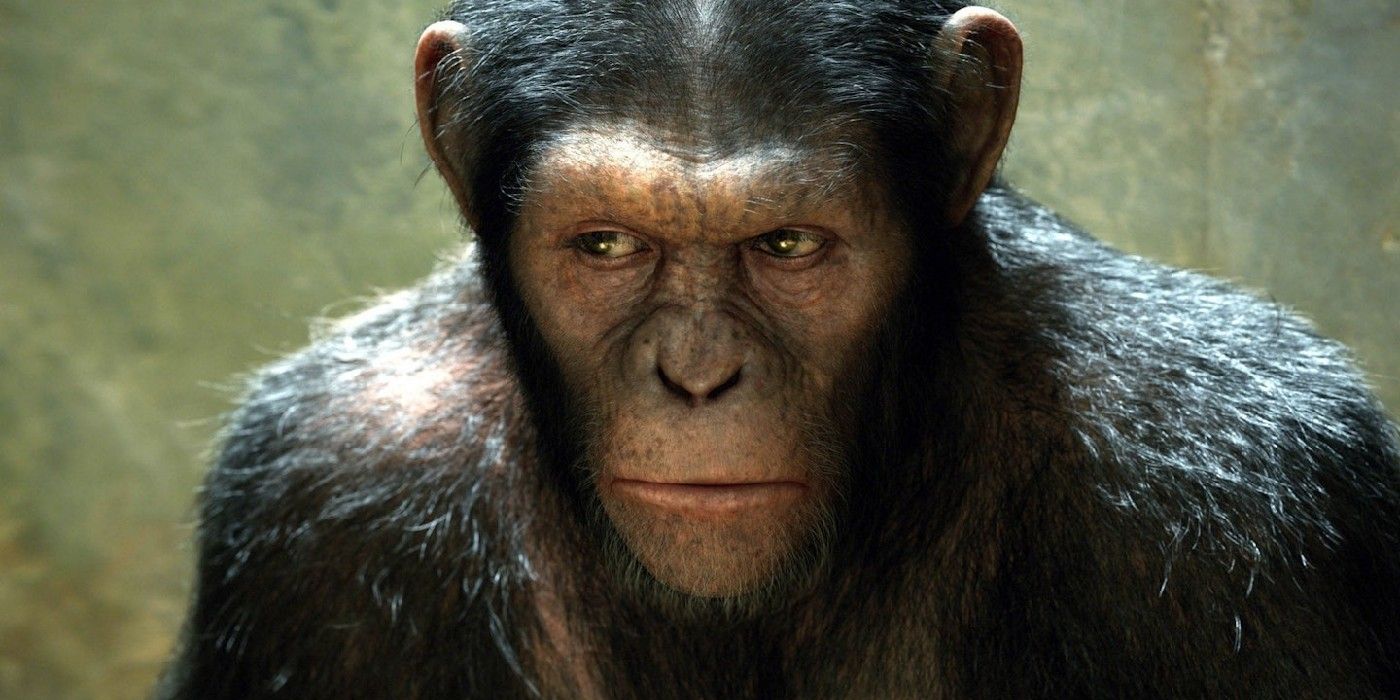
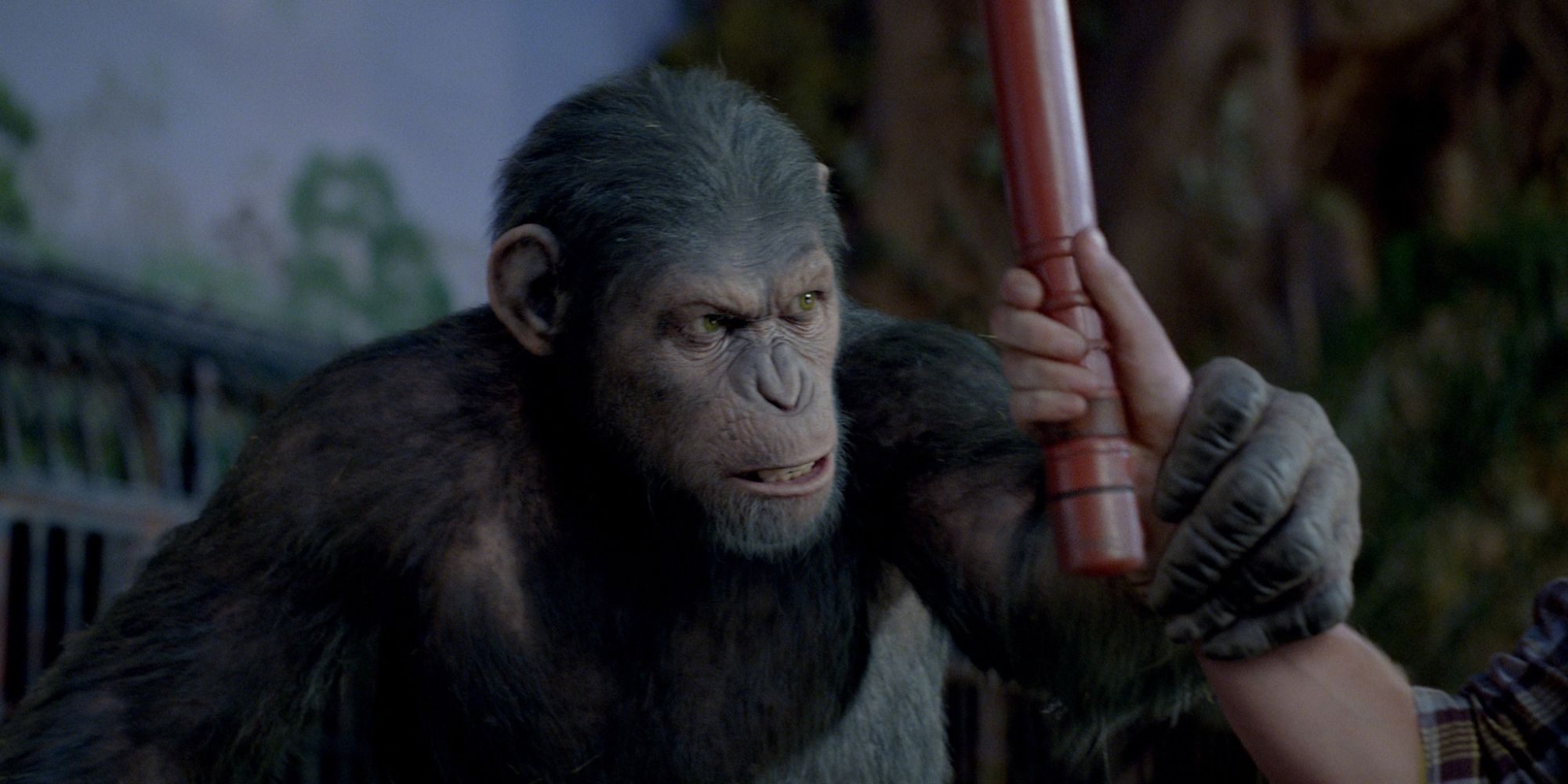
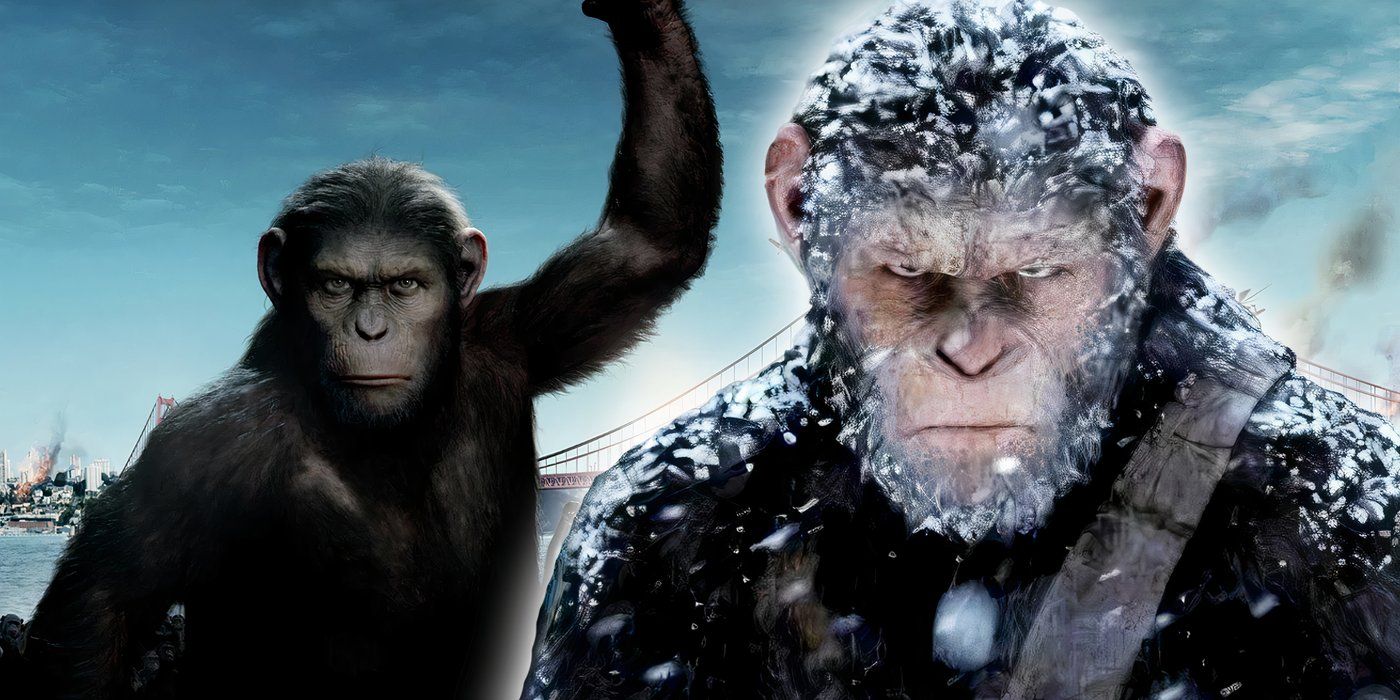
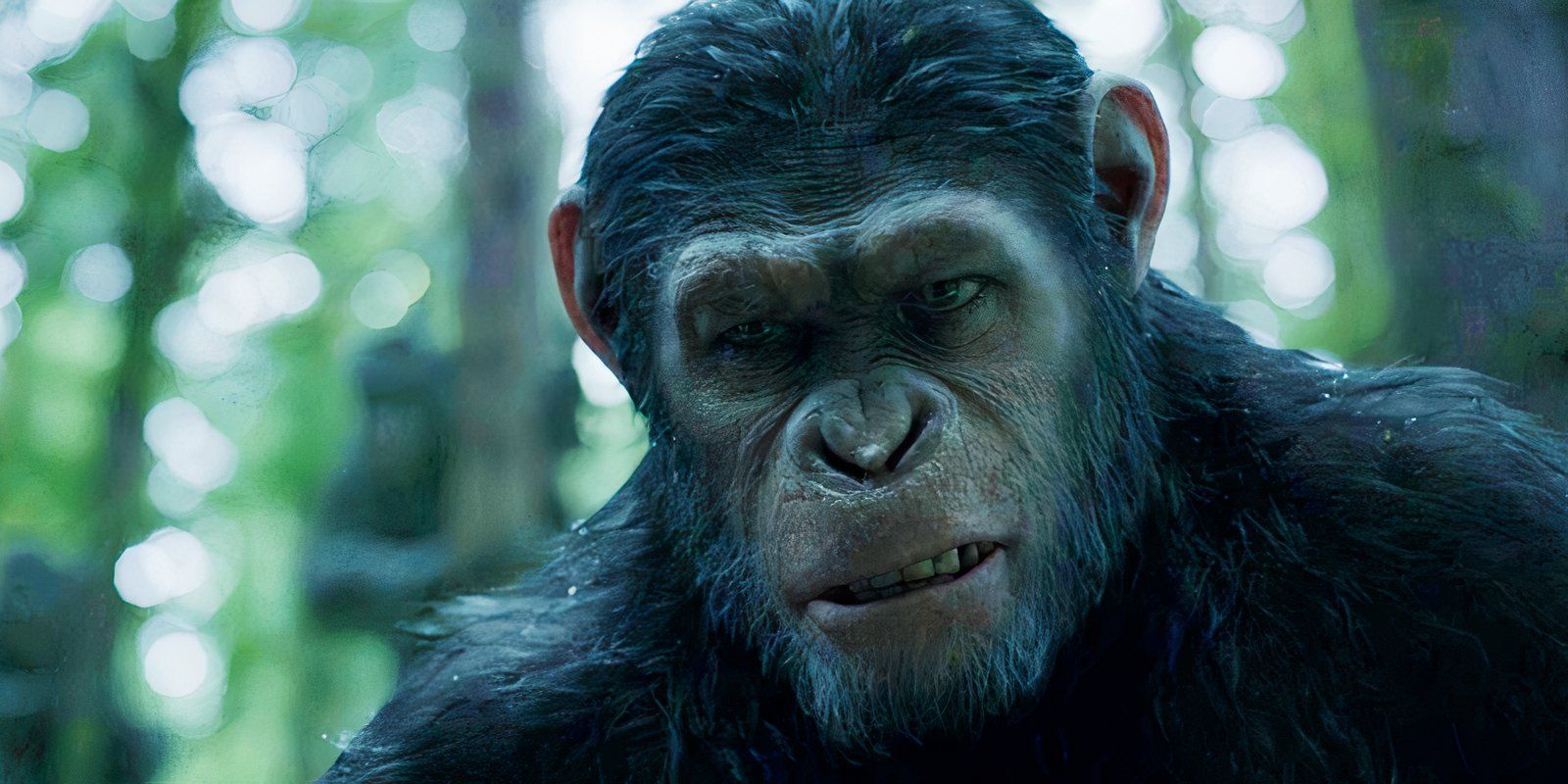
The film titled “Rise of the Planet of the Apes” initiates a reboot sequence which essentially functions as a prequel series to the original movies. However, like its predecessors, it also alters the chronology slightly. Disregarding the happenings in “Escape from the Planet of the Apes”, “Rise” introduces a chimpanzee named Caesar who is genetically enhanced by a scientist, Will Rodman (played by James Franco), as he seeks a cure for his father’s Alzheimer’s disease. Due to various instances of mistreatment, this intelligent ape eventually instigates a rebellion against humans, although it’s a relatively small-scale uprising that doesn’t signal the end of human civilization altogether.
The modern Planet of the Apes franchise includes:
| Film | Release Year | Rotten Tomatoes Score |
|---|---|---|
| Rise of the Planet of the Apes | 2011 | 82% |
| Dawn of the Planet of the Apes | 2014 | 91% |
| War for the Planet of the Apes | 2017 | 94% |
| Kingdom of the Planet of the Apes | 2024 | 80% |
In contrast, the movie “Planet of the Apes” initiates man’s demise through a virus known as the “Simian Flu,” which originated from scientific experiments. Similar to the virus in “Conquest,” the “Simian Flu” triggers the decline of humanity, albeit without nuclear war. Instead, “Dawn,” “War,” and “Kingdom of the Planet of the Apes” delve into the remnants of human civilization as it struggles and ultimately fails to live harmoniously alongside ape society. Despite the story’s numerous shifts, the fall of humankind in “Planet of the Apes” is consistently self-inflicted.
Read More
- Clash Royale Best Boss Bandit Champion decks
- Vampire’s Fall 2 redeem codes and how to use them (June 2025)
- World Eternal Online promo codes and how to use them (September 2025)
- How to find the Roaming Oak Tree in Heartopia
- Mobile Legends January 2026 Leaks: Upcoming new skins, heroes, events and more
- Best Arena 9 Decks in Clast Royale
- ATHENA: Blood Twins Hero Tier List
- Brawl Stars December 2025 Brawl Talk: Two New Brawlers, Buffie, Vault, New Skins, Game Modes, and more
- Clash Royale Furnace Evolution best decks guide
- Clash Royale Witch Evolution best decks guide
2025-05-02 22:41